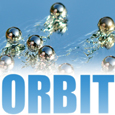It's full of stars
TES Teacher of the year 2011 Resources
[[|<<<]]
[[|>>>]]
Lesson idea. T
Teaching approach. Astronomy(topic) has been practiced for centuries and doesn't require expensive equipment! This first session aims to train the whole class(ta) to use a telescope and, hopefully, to provide an opportunity to engage in some active learning(ta). The lesson includes some naked-eye observations and describes how modern technology helps scientists know where to look. You can explore the scientific method(ta) and language(ta) at this point, using targeted questioning(ta)/differentiation(ta). Students may be able to engage in an inquiry(ta)-based project around this work, perhaps for homework(ta). (edit)
| Resource details | |
| Title | It's full of stars |
| Topic | [[Topics/Astronomy|Astronomy]] |
| Teaching approach | [[Teaching Approaches/Differentiation|Differentiation]], [[Teaching Approaches/Homework|Homework]], [[Teaching Approaches/Questioning|Questioning]], [[Teaching Approaches/Whole class|Whole class]], [[Teaching Approaches/Language|Language]], [[Teaching Approaches/Active learning|Active learning]], [[Teaching Approaches/Inquiry|Inquiry]], [[Teaching Approaches/Scientific method|Scientific method]] |
| Learning Objectives | • Increase the likelihood that the students will take an A level in Science (specifically Physics), |
| Format / structure | A Narrated Screencast of Session 1 from the Astronomy Masterclass. Looks at Practical Astronomy, what you can expect to see and how the basics of a telescope works: |
| Subject | [[Resources/Science|Science]] |
| Age of students / grade | [[Resources/Secondary|Secondary]], [[Resources/Year 10|Year 10]]
|


